
News • Public transport
Down the tube: Is the Underground 'Covid safe'?
Is the Underground a safe means of transport in times of Covid-19? A computer simulation, developed at the University of Leeds, has calculated the infection risk.

Is the Underground a safe means of transport in times of Covid-19? A computer simulation, developed at the University of Leeds, has calculated the infection risk.

Scientists have confirmed that an inhaled form of COVID vaccine can provide broad, long-lasting protection against the original strain of SARS-CoV-2 and variants of concern.

Researchers have developed an inexpensive, non-toxic coating for almost any fabric that decreases the infectivity of the virus that causes COVID-19 by up to 90 per cent.

Periprosthetic joint infection (PJI) can be an enormous challenge for orthopaedists and trauma surgeons. Antibiotic-loaded bone cement is an important element in a prevention strategy.

Researchers from Auckland have uncovered a link between the sharpness of surgical tools such as scalpels and the risk of post-surgery infection.
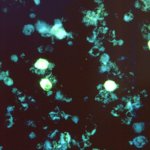
A connection between the Epstein-Barr virus and multiple sclerosis has long been suspected. A new study provides ‘compelling evidence of causality’.

Researchers have developed a diagnostic for Sars-CoV-2 that is capable of differentiating between Covid-19 and the garden-variety bug with fast turnaround.

A type of the antibiotic resistant superbug MRSA arose in nature long before the use of antibiotics in humans and livestock, which has traditionally been blamed for its emergence.
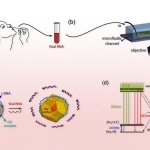
Scientists at have designed a quantum sensor to detect SARS-CoV-2 faster, cheaper, and more accurate than the current gold-standard technique, PCR.
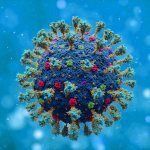
The Omicron variant of SARS-CoV-2 may be significantly better at evading vaccine-induced antibodies – but preliminary evidence suggests it is less likely to cause severe illness in the lungs.

The Zybio EXS2600 mass spectrometry system enables rapid microbial identification, including bacteria and fungi. With an advanced pre-filled sample kit, user-friendly software and a comprehensive strain database, the EXS2600 offers high-throughput screening, convenient operation and accurate results.
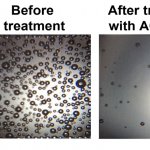
In experiments using saliva samples from COVID-19 patients, the gum, which contains the ACE2 protein, neutralized the virus.

Smartphone pictures of post-surgical wounds taken by patients and then assessed by clinicians can help with the early identification of infections, a study has found.

Increasing collaboration between health care providers and the medical industry is proven to be beneficial as it continues to pave the way for innovative technologies. By bringing expert opinions to the table, we can explore patient safety and infection prevention, discussing what can further be done to improve the endoscopic field. Sparked your interest?

A study by the Universities of Basel and Saarland shows that there is almost no risk of transmission of the Covid-19 virus on the field. They suggest that blanket quarantine measures for opposing teams are not justified if no close contact has taken place off the playing field. Governments have introduced various measures over the past 18 months in an effort to curb transmission of the Covid-19…

Wound infections are the most common problem after surgery, but promised innovations to tackle the issue do not work and global guidance needs changing.
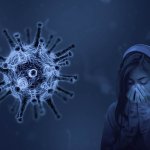
“Twindemic” is a term that has not yet been in the headlines but is likely to become part of our lexicon as the summer progresses.
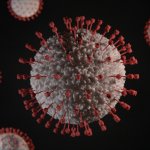
The Covid-19 crisis that gripped England between September 2020 and June 2021 can be thought of as a series of overlapping epidemics, rather than a single event, say researchers at the Wellcome Sanger Institute, EMBL's European Bioinformatics Institute (EMBL-EBI) and the German Cancer Research Center.
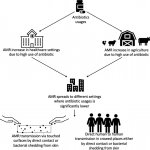
Making recommendations for change, academics analyzed global data into the prevalence of antimicrobial resistance in urban areas—the rise of which is threatening the lifesaving role of the medications.
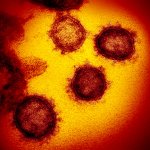
Hope for a future without fear of Covid-19 comes down to circulating antibodies and memory B cells. Unlike circulating antibodies, which peak soon after vaccination or infection only to fade a few months later, memory B cells can stick around to prevent severe disease for decades. And they evolve over time, learning to produce successively more potent “memory antibodies” that are better at…
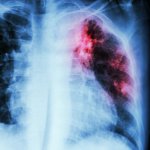
After infection with SARS-CoV-2, where does the immune system store the memory to provide long-term protection against reinfection? Though numerous studies have examined blood to track immune responses to SARS-CoV-2, a new study of Covid survivors shows that the memory of the infection is primarily stored in T and B cells within the lung and the lymph nodes surrounding the lung.

Water, hygiene and infection prevention solutions and services provider Ecolab launches its Hand Hygiene Compliance Measurement (HHCM) System, a digitally connected technology to systematically monitor and improve hand hygiene in healthcare settings, across Europe. In healthcare settings, clean hands save lives. While the Covid-19 outbreak increased adoption of hand hygiene measures at first,…

A study found that women who contract Covid-19 during pregnancy are at significantly higher risk of developing pre-eclampsia. In their study, researchers said their systematic review shows that women with SARS-CoV-2 infection during pregnancy had 62% higher odds of developing preeclampsia than those without the infection during pregnancy.
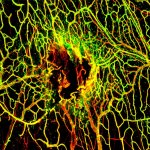
Researchers have found a possible explanation for why some patients recover much more poorly from brain injury if they later become infected.
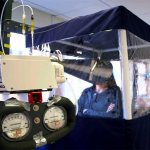
Study suggests need for better ventilation and tight-fitting masks, in addition to widespread vaccination to help stop spread of the virus.